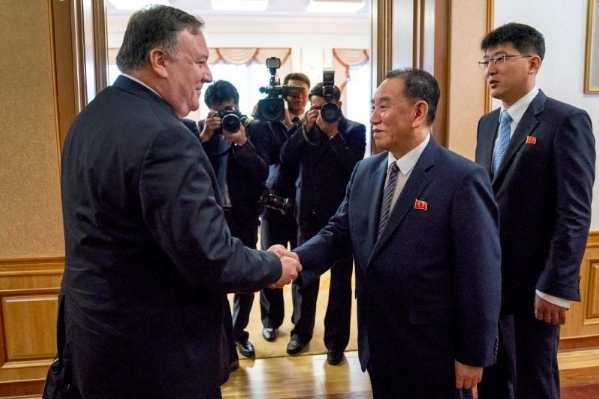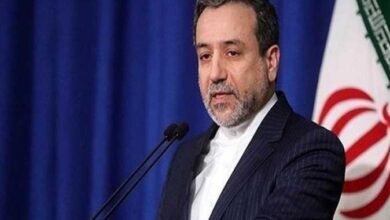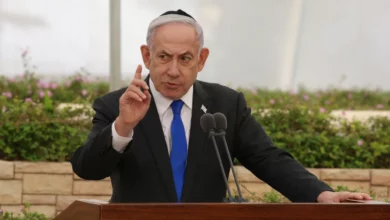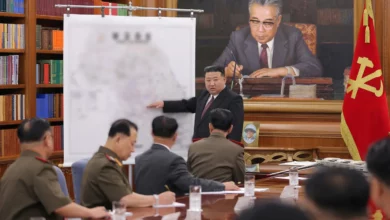
U.S. Secretary of State Mike Pompeo held a second day of talks in North Korea on Saturday in an attempt to agree details on dismantling the North’s nuclear program after both sides said they had things to “clarify” from the previous day.
Pompeo spent his first night in the North Korean capital in three visits so far this year before leaving the government guest house where he stayed to make a secure phone call to update U.S. President Donald Trump on the talks.
He then sat down again with Kim Yong Chol, the top North Korean party official and former spy agency chief with whom he played a key role in arranging the summit between Trump and North Korean leader Kim Jong Un in Singapore on June 12.
Pompeo reiterated that Trump was “committed to a brighter future for North Korea”.
“So the work that we do, the path toward complete denuclearization, building a relationship between our two countries, is vital for a brighter North Korea and the success that our two presidents demand of us,” Pompeo said.
Kim agreed that the work was important. “There are things that I have to clarify,” he said.
Pompeo responded: “There are things that I have to clarify as well.”
U.S. State Department spokeswoman Heather Nauert said Pompeo and his staff later held a working lunch with their North Korean counterparts.
She said progress had been made but gave no details. Nauert also said Pompeo had been “very firm” on three basic goals: the complete denuclearization of North Korea, security assurances, and the repatriation of U.S. remains from the 1950-53 Korean War.
“He’s spoken about every element of the agreement from Singapore,” she told reporters, according to a pool report from Pyongyang.
She said there had been no softening in the U.S. positions, although she would not explain why the department no longer defines its aim as “complete, verifiable, irreversible denuclearization” (CVID).
“Our policy hasn’t changed,” she said several times when asked about CVID. “Our expectation is exactly what the president and Kim Jong Un jointly agreed to in Singapore, and that is the denuclearization of North Korea.”
Pompeo left Pyongyang for Tokyo at 4:26 p.m. local time (0726 GMT). It was not immediately clear if he had met Kim Jong Un, as he did on his previous trips.
‘SECURITY GUARANTEES’
Kim Jong Un made a broad commitment to “work toward denuclearization of the Korean Peninsula” in Singapore but offered no details of how or when North Korea might dismantle a weapons program that Trump has vowed will not be allowed to threaten the United States.
Trump, meanwhile, committed to providing “security guarantees” to North Korea and Washington later called off one of its major joint military exercises with South Korea, which Pyongyang regularly denounces as rehearsals for invasion.
Nauert said U.S. and North Korean officials had set up working groups to deal with “nitty gritty stuff”, including verification of efforts to achieve denuclearization, which would be headed on the U.S. side by Sung Kim, a Korean-American who is also ambassador to the Philippines.
She said U.S. national security adviser John Bolton and White House chief of staff John Kelly were also on Pompeo’s earlier briefing call with Trump.
‘CRACKING JOKES’
Pompeo held nearly three hours of talks with Kim Yong Chol on Friday and a working dinner that Nauert described as further “relationship building”. She said the dinner lasted an hour and 45 minutes and at times the two were “cracking jokes” and “exchanging pleasantries”.
North Korea’s official KCNA news agency said Pompeo’s delegation was taking part in high-level talks for implementing the Singapore summit statement but gave no more details.
U.S. intelligence officials told Reuters that Pompeo would try to agree on at least an initial list of nuclear sites and an inventory that could be checked against available intelligence.
The issue of the remains of U.S. soldiers missing from the Korean War is also high on the agenda. Trump said after the Singapore summit Kim had agreed to send the remains back to the United States.
Both issues are considered essential tests of whether Kim is serious about talks. North Korean officials have yet to demonstrate that in working-level talks, the intelligence officials said.
Some officials in the State and Defense Departments and inU.S. intelligence agencies are worried that Trump has put himself at a disadvantage by overstating the results of the Singapore summit.
Pompeo had said before the Singapore summit Trump would reject anything short of “complete, verifiable and irreversible denuclearisation”.
The State Department says pressure will remain until North Korea denuclearizes but, in statements this week, it redefined the U.S. goal as “the final, fully verified denuclearization” of the country.
Some U.S. officials and experts have said the change in language amounted to a softening in approach. The State Department said its policy remains unchanged.
Pompeo’s talks will be closely watched in the region. He is due to meet officials from allies South Korea and Japan in Tokyo on Sunday.



